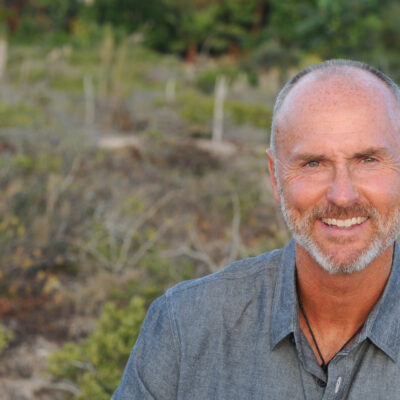‘Are You A Modern Elder? Why Your Wisdom is Needed Now More Than Ever’ by Chip Conley
Roughly 30% of the US population today hadn’t been born on 9/11. Nearly half weren’t born to see the stock market precipitously crash in 1987. And even fewer felt the fear of the most contagious years of the AIDS epidemic. A young friend recently lamented that all he’s ever known was ten years of good times since he started his business in 2010. In short, he has no idea how to get through a downturn.
I was recently conversing with my fellow Boomer, Gabriel, who was worried that we would be less valuable in an economy with rampant unemployment. Of course, if you were looking at our economic crisis in numbers, he’d have a good point. And there is no denying that this pandemic will cause an uphill financial battle for many elders. Ageism will likely rear its ugly head even higher.
That said, we definitely have something to offer those younger than us. While we’ve learned circumstances don’t necessarily improve as we age, our response to them does. Through a lifetime of experiences, we’ve developed coping mechanisms and pattern recognition to address the confusion, anger, and anxiety that arrives when life throws us a curveball. And, let’s face it, this is one of the nastiest curveballs we’ve ever seen.
It’s ironic that most of the world’s most famous futurists are older, even though they won’t likely be able to experience the future they are imagining. It’s equally ironic that just when our eyesight starts to fail, our future vision intensifies. And it is this vision which the world needs so desperately. In other words, we must move toward the front lines of this pandemic. While we may continue to let the medical professionals courageously tend to those who are physically infirmed, we must realize that emotional carnage is everywhere, and that first responders come in all shapes and sizes (and ages).
Your courage is needed. Your vision. Your hope. You have seen so much, witnessed the best and the worst humanity has to offer. Time has taught you that life is never as good as it looks nor as bad as it seems. The fog lifts. And we will be whole again. Young people are hungry for this message—hungry for what you have to offer.
But, maybe you’re struggling with being a “Modern Elder”? I asked myself this question when I joined Airbnb as an in-house mentor to the young co-founder and CEO Brian Chesky. I was a long-time hotelier who was hired by the tech start-up Airbnb in early 2013 to help them become a global hospitality brand. While I was hired to be the Head of Global Hospitality and Strategy, given that I’d created and grown the second largest boutique hotel company in the U.S., I was also hired to support and advise this young CEO with great potential. But, I also reported to him. Often, I was as much an intern as I was a mentor because, at age 52 (seven years ago), I’d never worked in a tech company and I was surrounded by people half my age and twice my digital intelligence.
During my time at Airbnb, I recognized a new kind of elder emerging in the workplace. Not the traditional elder of the past, regarded with reverence simply for years lived. But a Modern Elder, striking into new territory due to the growing value of their relevance: the ability to use timeless wisdom to address modern day problems. By understanding the importance of context, today’s Modern Elder is the perfect alchemy of curiosity and wisdom (curiosity to open up possibilities and wisdom to distill down what is essential).
In order to proudly embrace the word “elder,” it’s time we make a distinction between “elderly” and “elder.” Elderly is the last 5-10 years of our lives, when we may or may not be dependent on others; Elder is a relative term, defining us relative to those who surround us. As a 52-year-old joining Airbnb in its early days, I was certainly an elder. But I was also a new version of what that meant.
My experience at Airbnb led me to creating the world’s first “midlife wisdom school,” the Modern Elder Academy, located with its beachfront campus on Mexico’s lovely southern Baja peninsula. With more than 750 alums from 24 countries in the past two years, MEA has created a new kind of “lifelong learning” experience, one dedicated to offering “long life learning.” In a world in which we’re living longer, power is moving younger, and the world is changing faster, it’s no wonder that an increasing number of people in the middle of their adult years are feeling bewildered and irrelevant.
As a social enterprise, we’re committed to more than half of our students (average age: 54) being on some form of scholarship we offer for our one-weeks programs. Creating socio-economic diversity magnifies our ethos that “wisdom is not taught, it’s shared” and helping mid-lifers feel more resilient and adaptable due to shifting their mindset on aging and embracing their mastery allows us to encourage more intergenerational collaboration.
With five generations in the workplace for the first time, it’s time for us to cultivate and harvest our collective wisdom in ways that we’ve never before seen. 75% of Millennials have said they’d like a mentor, but a small fraction have one. Maybe it’s time you became a “mentern,” part mentor and part intern. You have wisdom to offer, but if your story is anything like mine, you have so much more to learn as well.
Chip Conley is a New York Times bestselling author with his most recent book being “Wisdom@Work: The Making of a Modern Elder.” He’s been awarded the “Most Innovative CEO” in the San Francisco Bay Area and received hospitality industry’s highest honor, the Pioneer Award.


